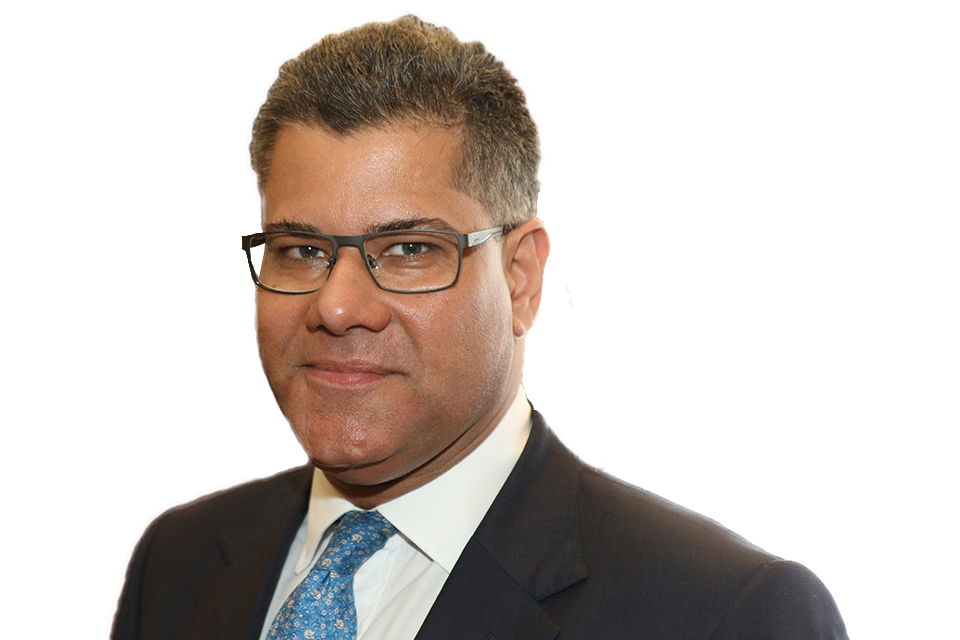The speech made by Alok Sharma, the President of the COP26, in Naples, Italy on 23 July 2021.
Thank you to all our Italian colleagues for hosting us at this crucial G20 meeting.
Friends, we are 100 days from COP26 where the global community expects world leaders to come together, and with one voice, demonstrate that we are living up to the expectations of the Paris Agreement, that we are doing all we can to limit global temperature rises to well below 2 degrees and closer to 1.5 degrees.
This G20 ministerial is a vital step on the road to Glasgow.
Countries in this room represent almost 80 percent of global emissions. And 85 percent of the global economy.
And what we do, what we decide, and the level of ambition we demonstrate, matters.
We hold in our hands the keys to our children’s future.
And the choices we make, literally today, the choices we make, can unlock a healthier, safer, cleaner future, or they can drive the Paris Agreement goals further out of reach.
And I think as friends we have to be frank: our decisions to date have harmed our children’s future.
Since the Paris Agreement was put in place, global emissions have gone up, not down.
Globally a million species face extinction because of human activity, because of our treatment of the planet.
So my friends, be in no doubt, that what we decide today really matters.
And the eyes of the world, the eyes of our children, are on us.
Each of us need only look to our own doorsteps to recognise why, every fraction of a degree in global temperature rises makes a difference.
Extreme weather is on the march across the world.
Wildfires are raging across North America.
Floods in China and across Europe, are leaving a trail of devastation in their wake.
In the past few years, South Africa has faced municipal water supplies running dry.
Super Cyclone Amphan unleashed destruction in Bangladesh and India.
Last year Jakarta experienced the biggest rainfall since records began, causing 100,000 people to evacuate their homes.
In Brazil we have seen forests on fire.
Permafrost is melting in Russia.
Dust storms, caused by desertification are costing Saudi Arabia some billions of dollars a year.
And in the last few weeks alone, Turkey has recorded its highest ever temperature.
Friends, people are dying now because we are losing control of climate change.
People are losing their livelihoods, their homes.
And their communities are being destroyed.
So we have to ask ourselves, how did it come to this?
We cannot say that we were not warned.
We cannot say that scientists had not raised the red flag.
We knew this was coming, and we know that without change, the situation will get far worse.
Climate change is not a distant threat, one that we can try and fix in 2 years, 5 years or 10 years.
We must collectively and decisively deal with this foe now, before it overwhelms us.
Sadly, it is already starting to overwhelm the most climate vulnerable nations on earth.
Small island developing states.
Countries which have done the least to cause the impacts they are experiencing.
Countries like Antigua and Barbuda, where I have seen the destructive power of hurricanes like Irma, which are increasing in ferocity and frequency.
And which has scarred the country, causing death, which can never be overcome, and damage which, 4 years on, has not been repaired.
Or mountain states like Nepal, where I have spoken to communities driven out of their villages, due to a combination of droughts and flooding from melting glaciers.
Or countries in Africa, like Ethiopia, where crops have been destroyed because of plagues of locusts, spawned by a changing climate.
Friends, these people are scared for their futures.
Communities that have, through no action of their own, had their livelihoods and their basic sources of food stolen from them.
So what do we need to do to play our part in defeating this threat?
As the Paris Agreement, which we have all signed, says, we need to limit temperature rises to well below 2 degrees, closer to 1.5 degrees.
This is the only way to protect our people and our economies.
We can and must deliver on the 100 billion dollar commitment and increase action on adaptation.
Together we need to make clear our commitment to keeping 1.5 alive, to take the steps required to decarbonise our economies, agreeing to a net zero world by the middle of this century, and enhancing our 2030 commitments to get us on this track.
Friends, we all need to make these commitments.
And we have to show that this isn’t just about our words, it’s about our actions.
We know that unabated coal power is incompatible with a future that keeps 1.5 alive.
So let us tell the world today, we will seek to end unabated coal both at home and overseas.
We need to agree on these steps and make that clear through our statements today.
Because we have a choice, we can open the door to a healthier, cleaner and safer future for our children, or we can miss our chance.
Friends, I say to you, we must show the world that the G20 were not missing in action when it mattered most.
That confronted with the greatest threat to our planet, we stood tall and we acted.
That we took the decisions to secure our future and that of our children.
So we can look them in the eye and say: today, when it mattered most, we picked the planet.
